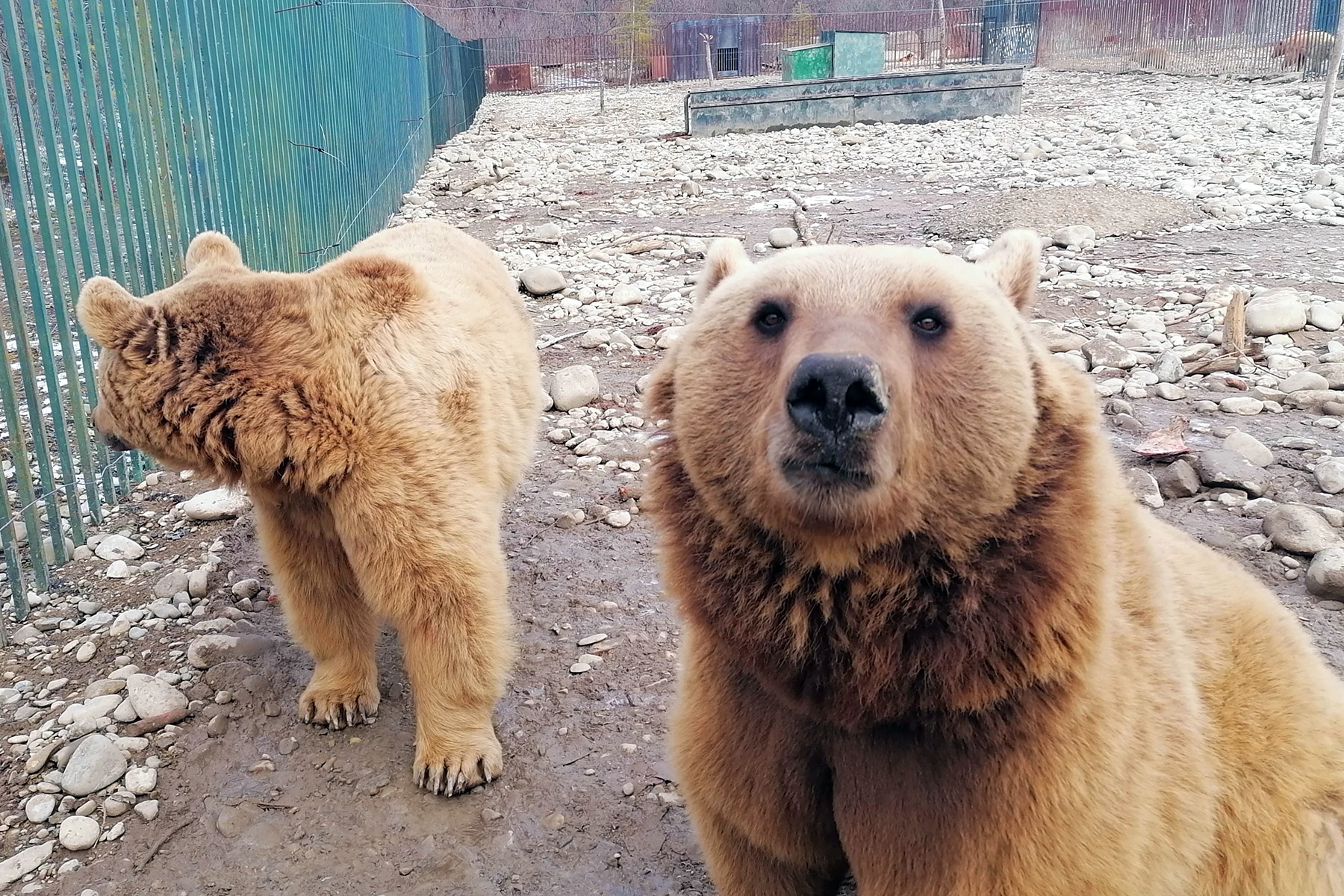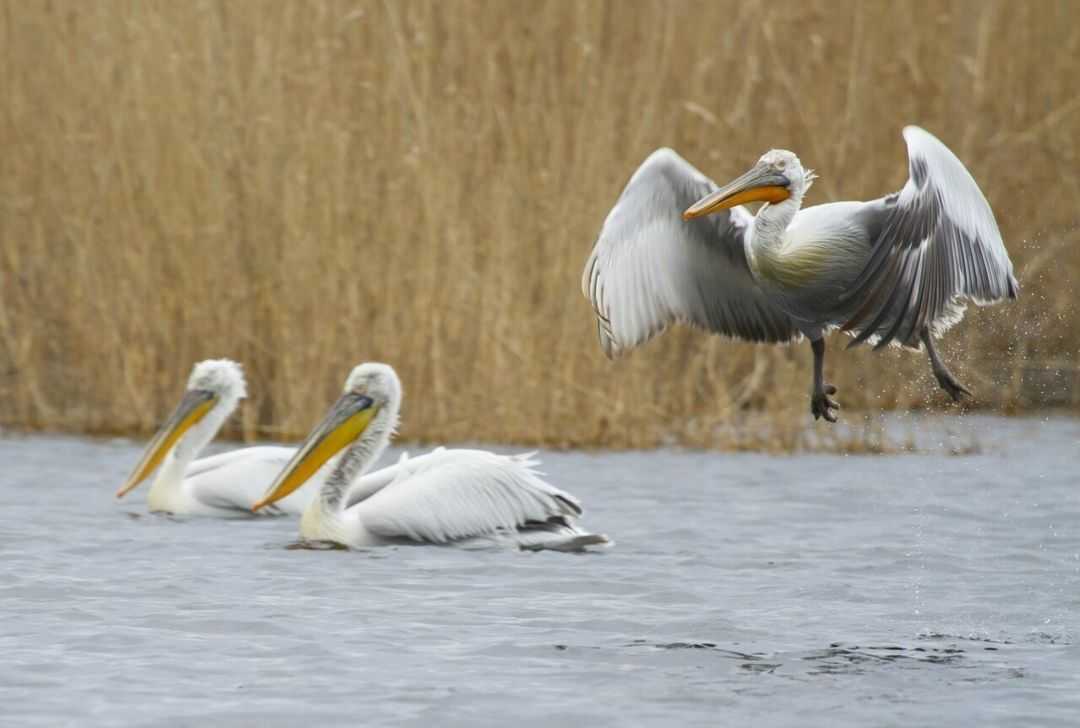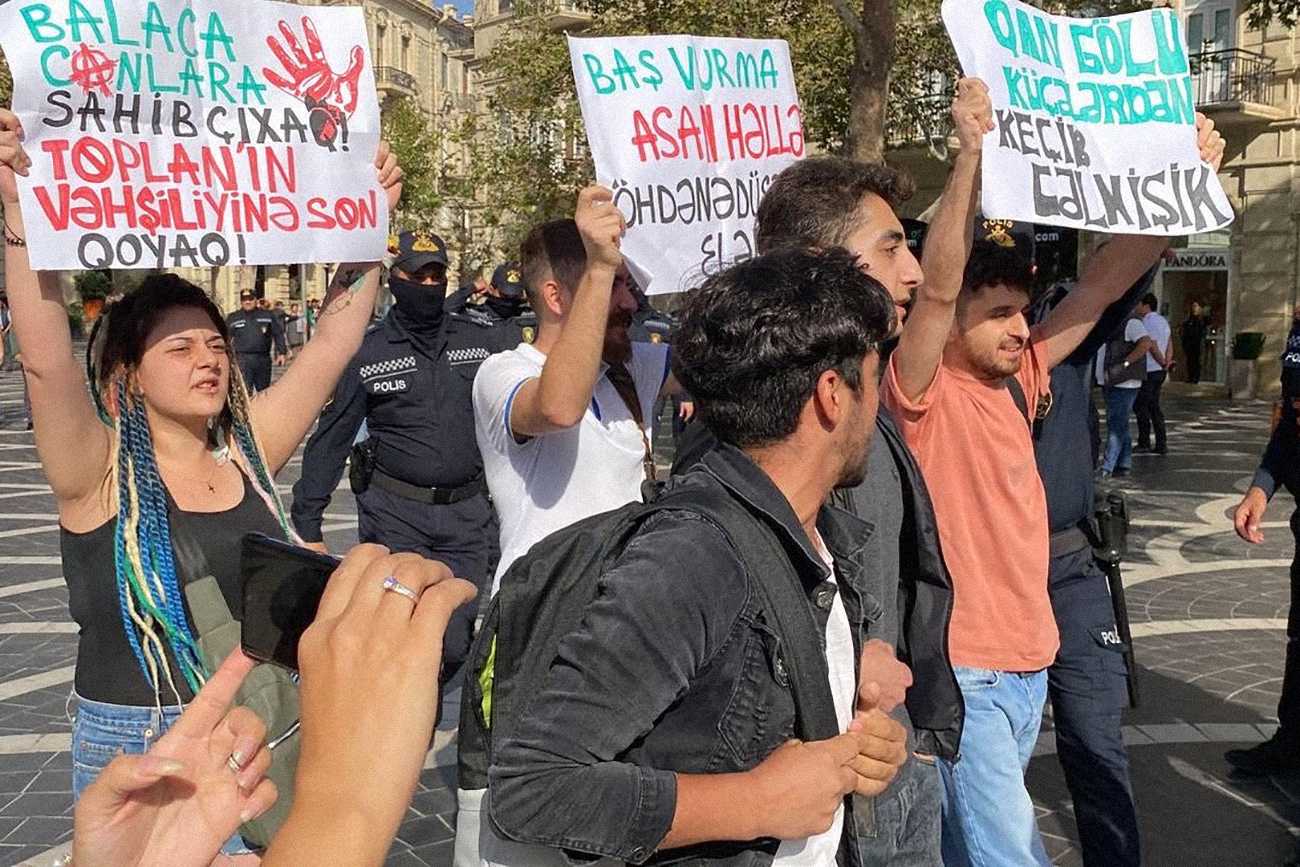
Many bears in Georgia are kept in captivity — often as ‘decorations’ to attract tourists. One shelter near Tbilisi is trying to save such bears from a similar fate.
Torgva was found 4 years ago in a forest near the town of Senaki, in western Georgia, and taken by local residents to their home. He was not deliberately harmed, the family treated him with love, but they were not able to provide the conditions he needed to live a good life.
‘He lived for 4 years in a basement, on the first floor of a residential building in Senaki’, says Irakli Kandelaki-Shpiller, a spokesperson for the Zoological Centre, a bear shelter in the village of Tskhvarichamia, near Tbilisi.
Kandelaki-Shpiller notes Torgva’s unnaturally dark coat, darker than the other bears at the shelter. He says Torgva was locked in an eight-square-metre room where he rarely saw sunlight, leading his coat to change colour.
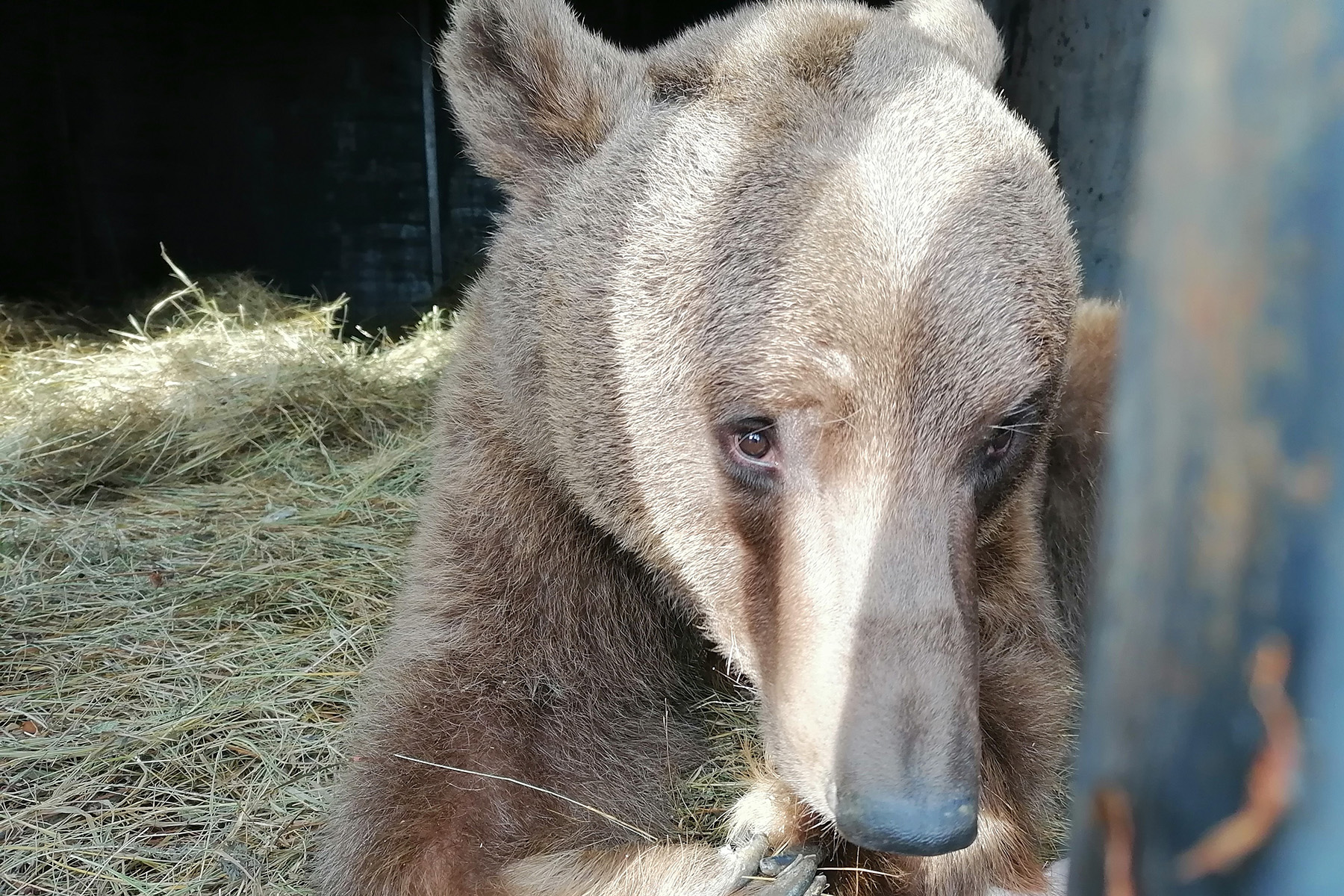
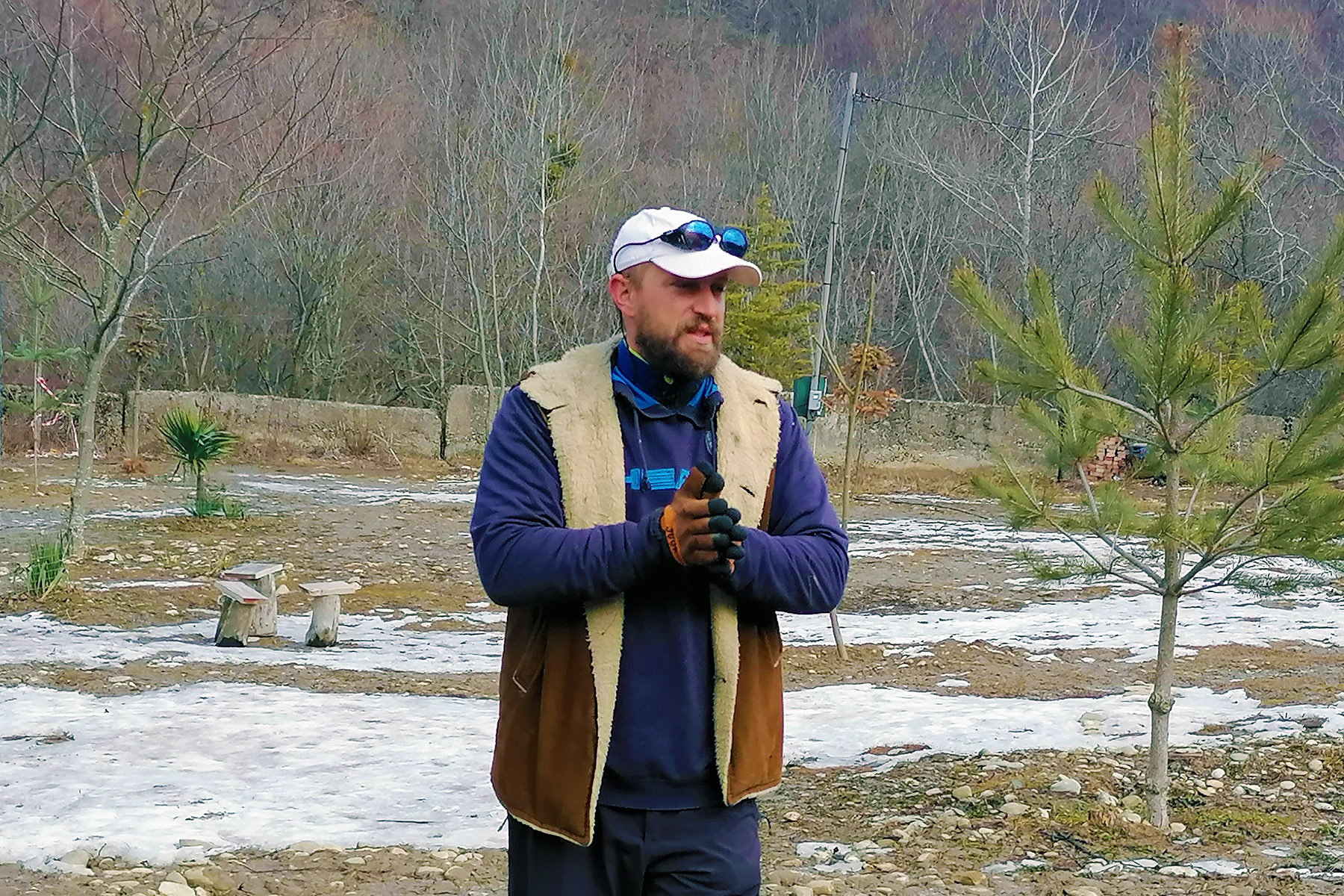
It was only after Torgva wounded someone and the police were called that he was taken to the shelter.
Torgva became known to state structures two years ago, Maia Chkhobadze, head of the Biodiversity Control Service under the Department of Environmental Monitoring of Georgia told OC Media.
‘At the beginning of 2020, this bear became the property of the state and then we started looking for a shelter for it. Then, due to the coronavirus pandemic, we suspended work’, the National Agency of State Property said. ‘And when it became possible to transfer the bear to the shelter, they took him to the nursery’.
‘Now Torgva is in good conditions, well-fed, and is beginning to get used to his new friends’, says Soso Jikurishvili, the shelter’s founder. ‘But he will still need time to get used to the new environment’, Jikurishvili adss.
‘The first bear lived in my house’
The Zoological Centre for Bears opened in 2010. It began when the shelter’s founder, Soso Jikurishvili, brought a bear cub named Balu from Kutaisi to Tbilisi at the request of his friends. Balu’s mother had been killed but he was spared.
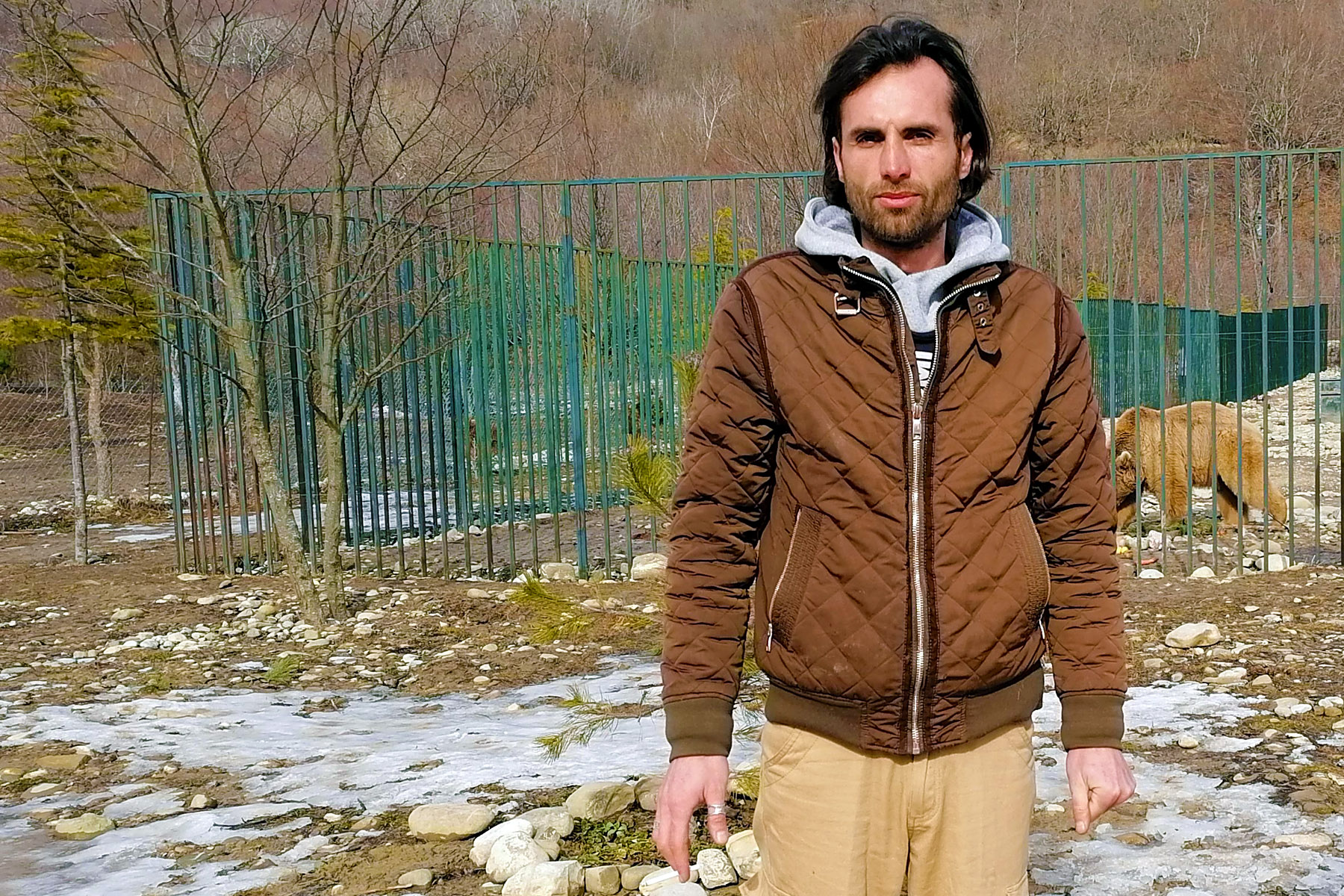
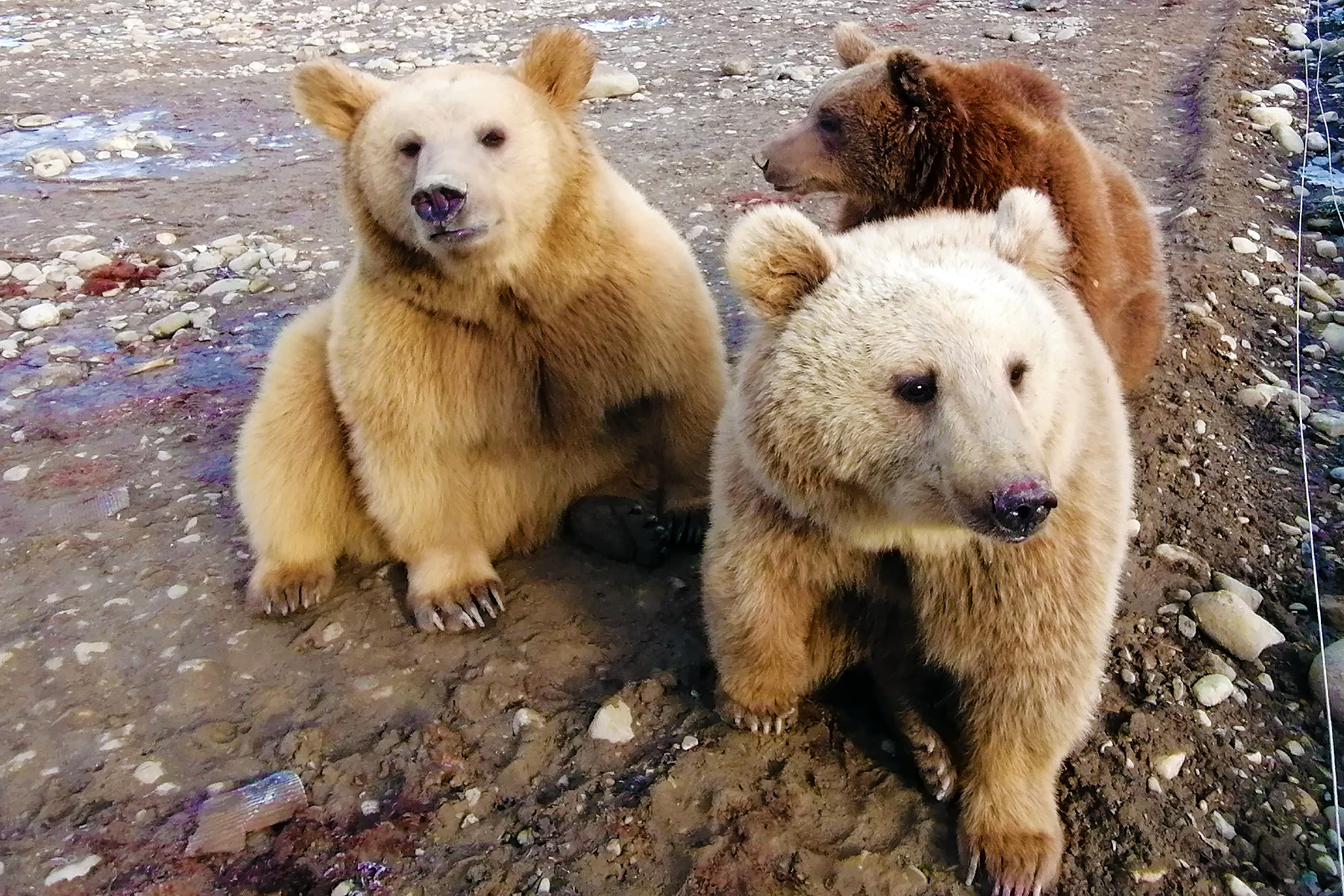
Jikurishvili says he had planned to hand over the cub to the care of the zoo or to ask for help from state structures.
‘He weighed only 1 kilogram; I had no idea what to do with a bear and didn’t know that this issue was controlled by the law’, he recalls.
He said the bear lived in his home for some time, as government agencies did not provide any assistance and the zoo refused to accept him.
When Balu began to grow up, Jikurishvili decided to create a shelter for him and other bears in need of help.
Now occupying a space of 5,000 square meters, the shelter is divided into three parts, each housing bears of different ages. Most are neutered to prevent breeding in captivity.
‘If a bear has been in captivity, it cannot be returned to the wild — it will not be able to find food and will again look for people to feed it’, Jikurishvili says.
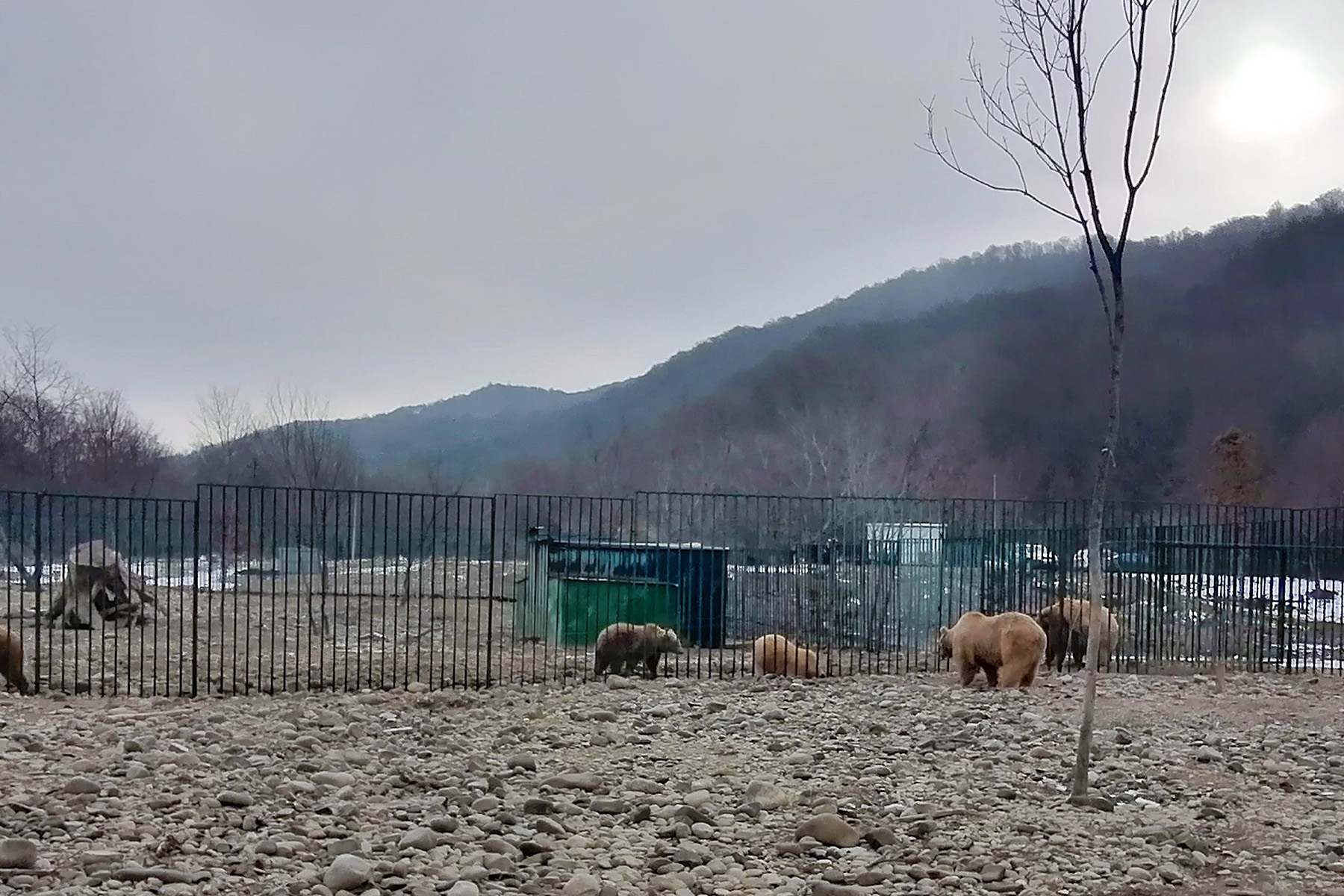
According to Jikurishvili, taking care of bears is a difficult task both physically and financially. Each of the 18 bears the shelter now houses eats at least 5 kilograms of fruits, vegetables, fish, chicken, and bread every day. The shelter is funded by the founders and by donations.
‘Several companies sell us products for a symbolic price, which is very helpful’, Kandelaki-Shpiller says. ‘Visitors often come with fruits and vegetables to feed the bears.’
A problem of poaching
There are no recent statistics or estimates on the number of bears in captivity in Georgia. In 2013, the Society for the Protection and Rescue of Animals of Georgia reported that around 50 were being kept illegally ‘in churches, monasteries, restaurants and private territories’.
Brown bears are listed in Georgia’s Red Book of endangered and protected species, and capturing and hunting them is illegal.
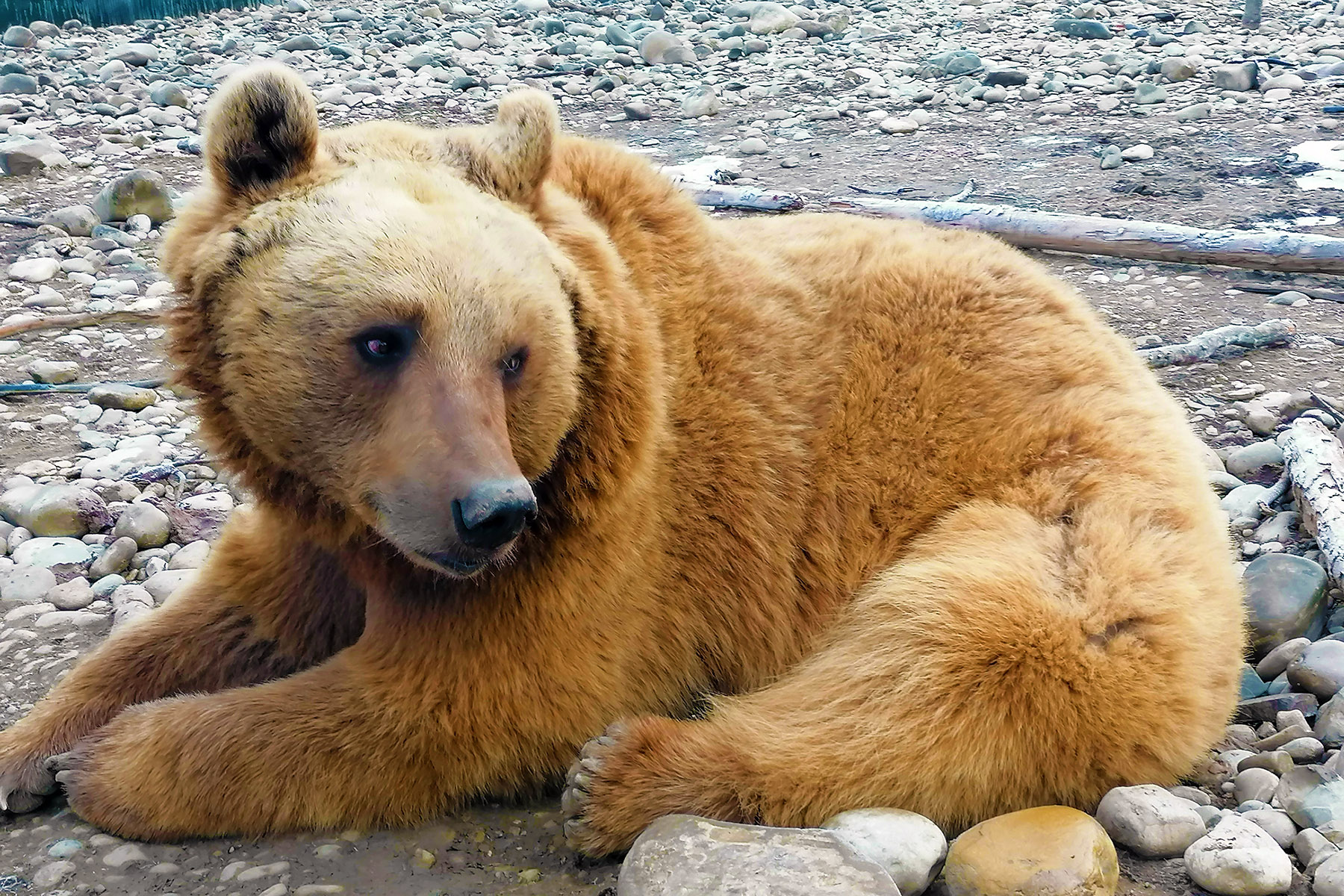
The head of the Biodiversity Control Service, Maia Chkhobadze, told OC Media that other rare species, including birds, were also exploited as ‘bait’ for tourists and visitors across Georgia.
‘After the animals are confiscated, they are transported to shelters, and people are fined ₾2,000 ($600). A criminal case may be initiated for ill-treatment’, she said, adding that despite their efforts they had so far failed to eradicate poaching in Georgia.
Jikurishvili says that the bulk of the bears living in their shelter were taken from poachers; with 2–3 new animals arriving every year.
He says that when poachers kill a bear, they take the cubs to sell or give as gifts. Often they are used as ‘living decorations’, attracting the attention of tourists.
‘If the fine is increased by several times, it may work, because in the regions people are unlikely to pay so much money for a killed or captured bear’, he says.
